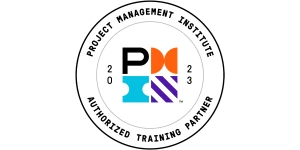Non-Traditional Education: How Times Have Changed
Do you remember all the lectures from your parents about education? Yes, those lectures about keeping your grades up in high school, taking college prep courses, then off to a reputable college. The point was, that if you didn’t go to college, then you would never be able to get a good job. For many, those lectures lasted for many years and they got their point across. You did exactly what you parents said. Sacrifice and struggle through high school to create the perfect college application. Then, you got into the perfect school and the struggle began all over again. In the end, you walked across a stage, and then you were presented a diploma for all of your dedication and hard work! Now, where is that great job you have heard about for all those years? The best you have been able to do is a minimum wage position, while living back at your parents’ house. What happened to the dream you were promised? You are working hard and all you have to show for it is a great education, and a big debt load from student loans. What happened?
The Times Are Changing
The fact is, you are not alone. More people than ever have climbed the ladder as expected, then found themselves without that promised job and struggling to make ends meet. The trend today seems to be changing the way people are considered for jobs. Employers are beginning to accept more non-traditional forms of education, such as online programs, certifications and blended education programs, instead of formal college education for hiring consideration. More and more of those applicants are seeking and completing non-traditional forms of education to meet requirements for employment. The advantages of non-traditional education are numerous. These programs allow students to complete their coursework on a schedule that meets their schedules, have significantly lower costs and prepare the student for the work they are seeking. The non-traditional programs span across a wide range of industries and give job seekers wider options for a career program.
Another classification of workers is emerging from the non-traditional education space. Freelance professionals are the perfect example of the new face of the American workforce. Freelancers are able to take advantage of online certifications, with blended learning opportunities, then land the perfect career situation. According to a recent survey, 54 million people worked in a freelance capacity in 2015. That number will exceed 75 million during 2016. That number equates to about 24% of the US population. The attraction of an independent lifestyle, coupled with flexible work hours and environment, are the main reasons for this surge.
Non-Traditional Education for Six Sigma
Six Sigma and Lean are the perfect career opportunities with non-traditional education potential. Training and certification for Lean Six Sigma can easily be obtained through several venues, such as online education, blended education and classroom education. These programs allow the student flexibility and an exceptional ROI for their educational investment. Lean Six Sigma professionals are in demand across a large number of industries. Potential professionals have opportunities in Lean Six Sigma in either traditional employment roles, or they can pursue freelance opportunities.
To learn more about education and training for a career in Lean Six Sigma, visit the 6Sigma.us website. WE offer the highest quality educational opportunities, presented by senior Lean Six Sigma leaders, across a global scale.
SixSigma.us offers both Live Virtual classes as well as Online Self-Paced training. Most option includes access to the same great Master Black Belt instructors that teach our World Class in-person sessions. Sign-up today!
Virtual Classroom Training Programs Self-Paced Online Training Programs






